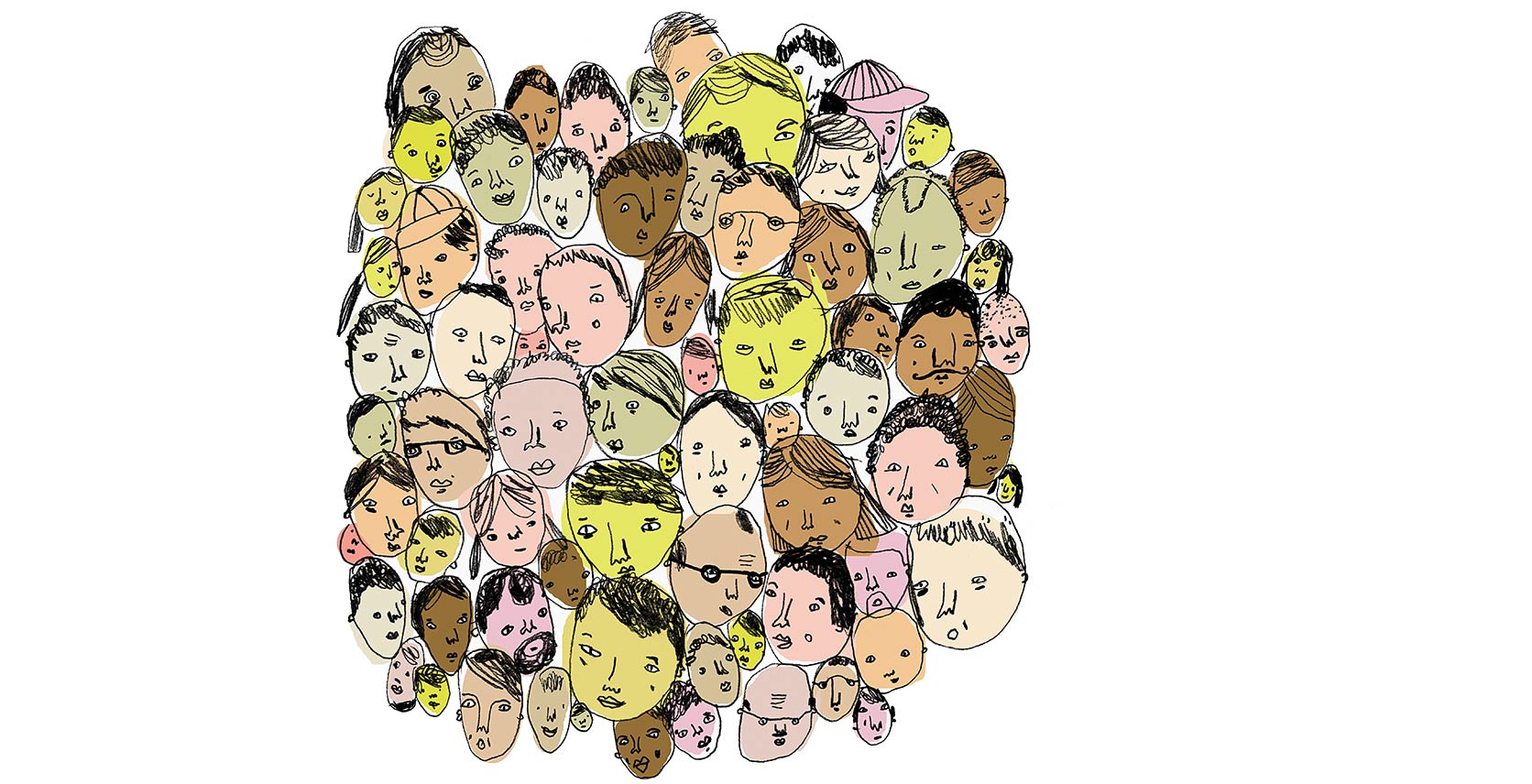Open Borders are Making Canada a Global Leader — Let’s Not Close Them
At a casual Sunday dinner in suburban Toronto this summer, the guest list included a young woman of Italian mother and Pakistani father and her partner, with one parent from Turkey and the other from the Bahamas. The hosts were of Italian background, and I moved to Toronto two decades ago from the United Kingdom after growing up in Egypt, Lebanon, and my birth country of Yemen. That evening, I got home just in time for the Bulgarian doorman to hand over to his Somali colleague, but not before I stopped to pick up the Sunday paper at the corner store, where the Kashmiri employee was watching an Indian soap opera on his laptop. While all this sounds like fodder for an episode of Aziz Ansari’s Master of None on Netflix (or a “Diversity Is Our Strength” Liberal Party campaign ad), it’s also the story of the everyday lives of millions in this country.
Nothing could be more Canadian or as symptomatic of the world we live in today than this amalgam of cultures, countries of origins, and personal histories converging on a city as large and as welcoming as Toronto.
The movement of people (as well as the physical and intellectual goods and services they provide) is as ancient as trade along the Silk Road or, even further back, the exodus of the first humans out of Africa into other continents. Since the modern era began, this redistribution of people and resources hasn’t always been fair or legal — let’s not do a Hollywood and whitewash colonialism or slavery — but our world would be unrecognizable and impoverished today without those who challenged the tyranny of borders and those who sought to stop the tide of free movement. But that’s exactly what’s happening in many parts of the world we once called free.
Political forces from both the far left (anti-globalization activists) and the far right (anti-establishment and anti-free trade) have found a common ground in championing narrowly defined concepts of national sovereignty. To those who voted for Donald Trump or in favour of Brexit in 2016, different races and foreign-made goods are the hills on which they’re willing to die. To the radical left, globalization has exploited workers in the developing world while putting pressures on wages and job security in the manufacturing centres of the Industrial North. To date, Canada has been spared the worst of this latest “trend” — and at times politics does echo fashion — but as the Trump administration reopens NAFTA and pulls out of the Paris Climate Accord, there is a growing risk of an isolationist mindset gaining a foothold here.
The challenge facing anyone advocating for a world of mobility and exchange of cultures is to make a compelling case for open borders and a connected economy to those who feel left out of the benefits of globalization. How do you tell a factory worker whose shifts have been cut in half or a department-store employee who saw her pension disappear after 40 years of service — or a recent graduate patching together a living from one contract to another — to not lose faith in a system that has dashed their expectations for a middle-class life?
“How do you tell a factory worker whose shifts have been cut in half to not lose faith in a system that has dashed their expectations for a middle-class life? Begin with facts.”
Begin with facts, while they still have currency. Several studies, including one by the Conference Board of Canada in 2016, suggest that current immigration levels to Canada will have to be increased from 250,000 to just over 400,000 annually in order to meet growth expectations and to compensate for an aging workforce. In two decades, Canadians over 65 will make up almost one quarter of the population. Our unemployment rate remains relatively low — 6.3 per cent currently — and many sectors, from technology to service to construction, report serious labour shortages. A robust economy demands people to work in it.
Of course, what should concern us is that newcomers get fair compensation and equitable treatment at the workplace. The Bulgarian doorman I referred to earlier is a classically trained musician who had to take a job below his qualifications to survive. He’s been at that front desk for almost 10 years now, and his chances of transitioning out of casual work are slim.
If resistance to open borders on economic grounds can sometimes be worn down by appeals to facts and figures, the cultural aspects require a more sustained effort. One unfortunate mark of an established community is to pull up the ladder after its members have climbed. Whether that community is European or South Asian — many brown voters favoured Brexit to punish the “job-stealing” Poles — accepting and welcoming people who look different requires leaps of faith and other acts of human empathy. We mistake our sense of belonging in Canada for an ownership of the land, which can be toxic and insulting to our Indigenous populations.
At the rate the Trump administration is pushing a protectionist agenda, expect the U.S. economy to slow down and its role on the world stage to shrink. In fact, the International Monetary Fund upgraded the outlook for Canada this summer, almost in the same breath it downgraded the economic forecast for both the United States and the United Kingdom. The benefits to Canada are immediate and will play out in multiple sectors. Toronto is now the fastest growing market for tech talent, creating 22,500 jobs between 2015 and 2016, compared to San Francisco’s 11,540 and New York’s 5,370. Canadian universities are experiencing a boom in international applications and this academic year will see an increase of 25 per cent in admissions from students who have decided that institutions in the U.S. and the U.K. may not be as safe or as welcoming. Since Canada offers a pathway to citizenship to international students after graduation, the intellectual benefits of globally and locally trained minds — innovation, connections to home economies and industries, among others — will give us a leading position on the world stage.
None of the above ignores the genuine fears that many Canadians have about their future. I teach university students and I know how anxious many of them are about a world that looks and feels very different from what they or their parents knew. Talk of turning a challenge into an opportunity feels hollow and too much like HR speak. But retreating into discredited notions of superiority of some faiths and races over others is not the answer. We need to fix the inequities of the economy and the more ruthless aspects of globalization before we slam doors that a few centuries or decades ago were opened wide for our ancestors.
Just ask the Italian grandparents of the hosts of that multi-ethnic dinner in Toronto. They crossed a sea and an ocean and the borders of several provinces to make a life for themselves and their children. In time, they shared their good fortunes (and fine food) with neighbours and friends. And isn’t Canada infinitely better for it?










